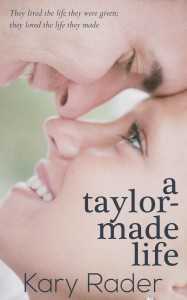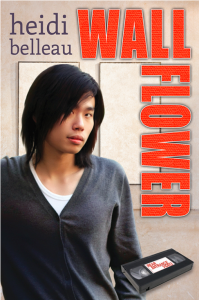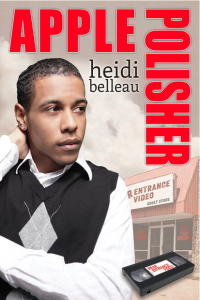So I’m working through the final stage of edits on the hot-mess hermit book, which as some may recall features a socially awkward, not-entirely-recovered alcoholic recluse with a shame-inducing fetish [linked post includes pseudo-spoilers]. Throughout the process of writing the book, I was so concerned that my hero was irredeemably fucked up, I didn’t spend much time at all worrying about my heroine, who’s generally functional and rational and mild-mannered. Until after I handed in my last round of revisions, when I panicked.
I’ve written a formerly fat heroine, I realized, as though I hadn’t designed her that way myself. I should say, Merry wasn’t romance-novel fat—not a size ten or twelve or lamentingly “curvy.” Merry was clinically obese, a hundred pounds overweight. She lost the weight over the course of a year, before the book opens, and when we meet her she’s hiking across Scotland, still coming to terms with her new body, which she’s simultaneously proud of and displaced by. The book’s not about weightloss per se—that’s something Merry’s dealing with, something that’s shaped and uprooted her and dropped her at a crossroads, but it’s secondary to all the other stuff between her and Rob, the hot-mess hermit.
So why am I suddenly panicked about all this? Because the question sprang into my mind, “Did I get this wrong? Am I going to offend or alienate people with current or former weight issues?” It’s such a thorny topic. I didn’t have an agenda I was trying to push, via Merry. I guess if I had to title one, it’d be, “Everyone has the power to change.” But here are some other messages people could find, if they went looking for them:
No one who’s overweight can possibly be happy.
No one who’s overweight can attract a quality partner.
No one who’s overweight has healthy self-esteem.
No one who’s overweight is healthy, period.
No one who’s overweight deserves love.
No one who’s overweight doesn’t wish they were thin.
Because Merry’s HEA comes after her weight loss, and because she’s happy with the change, I know I’m inviting all these interpretations. I hope it’s clear in the actual pages, neither I nor Merry believe any of those things is true.
Thirty-one, and she’d never been in love. She’d been infatuated, sure. She’d been in love in a guy’s general direction, but she’d never felt that light and heat shining back on her. She’d been clad too heavily in her own self-consciousness to welcome it. Some women wore their curves proudly—rocked the hell out of them, in fact. But that had never been Merry. Her extra weight had been defensive, something to hide behind, not to embrace.
Now the armor was gone. She felt exposed, but the sensation was as thrilling as it was scary. And if she ever wanted to get tangled in the writhing tentacles of passionate, mind-blowing, stupid-making, reciprocal true love, she’d have to make peace with this naked feeling.
She’s ambivalent about the change. Kind of giddy to be on the cusp of fitting into size-eight jeans and other cosmetic mile markers, but kind of let down that it hasn’t left her feeling…something. Something definitive that sparkles with confetti, something with a tangible finish-line tape to break through, or a tiara that says, “I’m Finally Worthy!” in rhinestones.
Let me tell you about another formerly fat gal. Me. I was chubby from puberty onward, and went off to college forty to fifty pounds overweight. I hated it. I did not rock my curves. I felt powerless over my emotional eating and didn’t do a lot of things because I was too self-conscious. I did not wear it well, not objectively or attitudinally. I felt like a sad sausage.
These days I’m thoroughly average-sized, and generally content. My dresses are sixes and eights and tens—I am medium incarnate—and I usually like how I look in my clothes. I can run four or five miles without stopping. I like sweating, a lot, and I eat well. If my favorite clothes start to feel snug, I track my eating habits for a week or two until I feel comfortable again. I feel like I’ve got that stuff under control. Or that I’ve called a tenuous truce with it. Whatever. Close enough, in this sadistic culture.
Shall I share with you the secret of my weight loss? Because I dropped about fifty pounds in six months, and despite a few peaks and valleys, I’ve kept it off for about thirteen years.
I wish I could say my journey was as Biggest Loser-worthy as Merry’s. She lost a loved one and got a major reality check, and went semi-OCD about the project overnight, losing her hundred pounds through a guerrilla campaign of healthy eating and daily exercise. She’s stuck now with a highly quantitative, calorie-policing mindset, but she’s working on that.
I, on the other hand, lost weight on a strict regimen of chicken noodle soup, Diet Coke, crippling infatuation, Tori Amos, and computer solitaire.
Hey, I was twenty-one. What the fuck did I know? I certainly didn’t think I was anorexic—I thought I was finally getting my shit together. I didn’t want to weigh ninety-five pounds or anything! Plus it was working. I probably danced around in the Express changing room after fitting into a pair of size-six jeans on the cusp of a nervous breakdown and sodium poisoning. I was in turns elated and psychotic. And really, really cold, all the time. My periods occasionally called in sick. But hey, it was my journey. It was ugly and dysfunctional and I do not recommend it, but it taught me I was indeed capable of being something other than the only unhappy size I’d known, and since then I’ve gotten into nutrition and exercise, bit by bit, year by year.
What I’m trying to say is, Merry’s fat story is basically mine, except she was more overweight and for longer, and she went about changing her habits in a more rational, informed, and healthy way. But we were identically unhappy when we were overweight, and overweight in part because we were unhappy. We never flaunted the extra curves we frankly resented, because they represented what felt like a womanly failing. Proof of a fundamental flaw. We both came of age heavy, in a culture that sees heaviness as a shameful condition to be fixed at all costs. Fat was what we knew, until suddenly we were something else. Something equally unwieldy, in far different ways.
But this is only one lens. A lens with that aforementioned takeaway, “Everyone has the power to change.” What about the million other lenses? The one that belongs to someone who digs their curves? The one that belongs to someone who wishes they could gain weight? To someone who got heavy after always being a skinny person, and had to adjust their self-image in the opposite direction that Merry and I did? To the life-long, effortlessly average-sized person who doesn’t get why people beat themselves up over this nonsense? To the person who lost weight to feel deserving of love, then attracted only dickbags who cared about looks? To a man? To a person of color? To someone with an underlying medical condition? To someone from a different culture?
To some, “fat” itself is a hate word. To others, a label to be embraced, and fuck you to the people who use it as a slur. There’s no universal experience, when it comes to weight. There are infinite, valid ways that one can view weight and weight loss—both their own and others’—and many people’s feelings on the topic are passionate, to say the least. In this book, I’ve represented only my own experience, tweaked and tailored to fit who Merry is. That leaves a lot of people, with a lot of differing experiences, to alienate.
In my panic, I sweated all over Charlotte about this, as she’d read the book. Wise woman that she is, she basically said, “Your point of view is as authentic as anybody else’s, and you presented it authentically. That’s all anybody can be asked to do.”
True. Plus the subtitle of this book isn’t “How to Lose Weight and Deserve Love!” Unbound doesn’t have a subtitle, and if it did it would probably be, “How to Love a Self-Loathing Hermit.” That’s the core concept. This weight stuff is just formative back-story that’s shaped the heroine, literally and figurative.
I don’t have a thesis to prove, here. I’m just waxing fretful on the topic of representing fat in fiction. Feelings? Seen it done in ways you loved, or ways you loathed? Seen it represented in the same way, too many times to count? Sick of Romancelandia decreeing that a size ten is fat? That boobs and hips are a curse to their female owners—a curse lifted only via the enlightening magic of hero-lust? Perplexed by the way romance heroines always seem to lose their appetites when they’re stressed, so much more pious and feminine than binge-eating? Stuff about heroes and their reactions to their heroines’ bodies, be their waists tiny and supple, or their hips lush and wang-rousing? Free-for-all time in the Wonko-Comments. Lay it on me.

 That’s the crux of my newest release, A Taylor-Made Life.
That’s the crux of my newest release, A Taylor-Made Life.





















